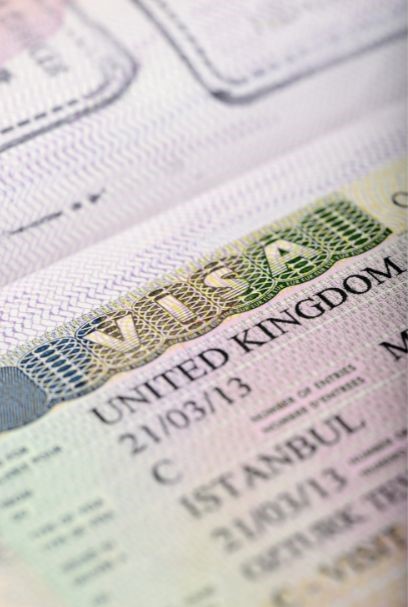What Activities Can a Business Visitor Undertake in the UK?
UK Business Visitor Visa Allowed Activities - Don't get caught out!

During 2024, the UK expanded the scope of activities permitted for business visitors, allowing for greater flexibility without the need for sponsorship or alternative immigration permissions. These updates provide many opportunities for professionals, specialists, and industry leaders to conduct short-term work-related activities in the UK. This guide explains what business visitors to the UK can and cannot do during their stay.
Categories of UK Business Visitors and Permitted Activities
General Business Visitors
Business visitors to the UK can engage in several activities, including:
- Meetings and Events: Attend meetings, conferences, seminars, or interviews.
- Negotiations and Deals: Negotiate contracts or sign business agreements.
- Promotions at Trade Fairs: Promote products or services at trade fairs, provided no direct selling occurs.
- Site Visits: Conduct site visits or inspections related to their business.
- Training and Knowledge Sharing: Briefings on UK customer requirements or sharing knowledge with UK colleagues.
Intra-Corporate Activities
For employees of overseas companies visiting their UK branch:
- Advising and Consulting: Offer internal consultancy or advisory services.
- Troubleshooting: Address operational challenges in UK offices.
- Training UK Employees: Provide specialised training for UK staff.
- Auditing: Conduct internal audits within the same corporate group.
These activities enable closer collaboration between international branches without the need for a work visa.
Specialist Occupations
Some specialist roles are explicitly permitted under the visitor category:
- Installation and Repairs: Install, dismantle, repair, or service machinery, equipment, or software.
- Translation and Interpretation: Provide language services to UK-based clients.
- Legal Professionals: Offer legal advice, act as arbitrators or mediators, or participate in advocacy and litigation.
- Media Professionals: Journalists and producers can gather information for overseas outlets.
- Market Research: Conduct market analysis for businesses based outside the UK.
- Teaching Abroad Programs: Professors accompanying study abroad students can provide limited teaching.
Expanded Opportunities for Scientists, Academics, and Researchers
There are expanded opportunities under the UK Business visitor provisions for:
- Research: Conducting independent or collaborative research.
- Knowledge Exchange: Participating in formal academic exchange programs with UK institutions.
- Teaching: Delivering lectures as part of study programs.
Allowing these activities strengthens the UK’s position as a global hub for academic collaboration and innovation.
Permitted Paid Engagements (PPE) Within the Standard Visitor Visa
The PPE provisions are now included in the Standard Visitor Visa, providing even greater flexibility. Professionals entering under this category include:
- Academics and Experts: Deliver lectures or workshops at UK institutions.
- Artists and Performers: Engage in artistic or cultural events.
- Legal and Financial Professionals: Act as expert witnesses, arbitrators, or mediators.
- Sportspersons: Participate in short-term events or competitions.
Key Considerations for PPEs:
- Activities must be pre-arranged.
- PPE activities are capped at 30 days but fall within the broader six-month visitor allowance.

Remote Work and Business Visitors
While in the UK, business visitors can carry out remote work related to their overseas roles. However, this must not be the primary purpose of their visit and cannot involve providing services to UK-based clients.
Compliance Considerations for Employers
Although the 2024 changes to the UK visitor rules for business travellers make the country more accessible for short-term business activities, compliance remains paramount. Key points include:
- Sponsorship Rules: Activities involving direct client services in the UK may require a Skilled Worker visa or other appropriate permissions.
- Work Restrictions: Visitors cannot take up employment, establish a business, or perform services for pay beyond permitted engagements.
- Record Keeping: Businesses hosting visitors must ensure proper documentation and compliance with UK immigration laws.
Preparing for Business Visits: A Checklist
- Understand the Rules: Familiarise yourself with permitted activities under the Standard Visitor Visa.
- Plan Ahead: Ensure all pre-arranged activities fall within the permitted scope.
- Documentation: Visitors should carry supporting documents, such as invitation letters, itineraries, and proof of overseas employment.
- Duration Management: Plan visits within six months and adhere to activity restrictions.
- Legal Guidance: Consult with immigration experts to ensure compliance with the latest rules.

Conclusion
The current rules for business visitors offer opportunities for professionals to engage with the UK market while maintaining compliance with immigration regulations. Whether attending a conference, providing specialist training, or conducting market research, understanding these new provisions should be a priority to make the most of your visit.


Trusted UK Business Visa Support – ON DEMAND
Access step-by-step video guides, document templates, expert reviews, and legal support to help you apply for a UK Business Visitor Visa with confidence. All in simple English, available on demand, 27/7 and at a fraction of the usual cost.
Access step-by-step video guides, document templates, expert reviews, and legal support to help you apply for a UK Business Visitor Visa with confidence. All in simple English, available on demand, 27/7 and at a fraction of the usual cost.

.jpg?updated=1738152253)






